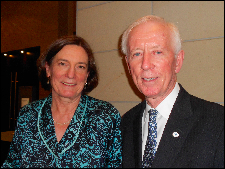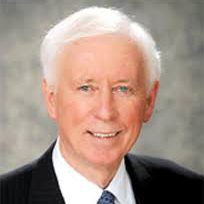Medical Ethics, Contact Sport
The first day of the World Medical Association (WMA) Expert Conference in Cape Town, South Africa on the Declaration of Helsinki (DOH) should dispel any notion that discussions about ethics are invariably soporific (sleep-producing).
87 delegates from 26 countries provided the rich discussions I heard yesterday and are a reassuring confirmation that physicians as a profession care deeply about medical ethics. The questions, debate and engagement of members responding to the keynote speakers were probing, passionate and persuasive.
The day started with welcoming remarks from Dr. Zephne M. van der Spuy, president of the South African Medical Association and Precious Matasoso, Director General, South African Ministry of Health. I brought greetings from the WMA (partially shared in yesterday’s blog).

Urban Wiesing, Director Institute for Ethics and History of Medicine University of Tubingen described the process for revising the DOH and the history of previous similar efforts. Zeke Emanuel, MD, renown Bioethicist and Chair Department of Medical Ethics University of Pennsylvania gave the first keynote speech describing recommendations about improving the structure of the DOH, reducing conflicting language and making the document more of a constitutional type document emphasizing general principles and eschewing specific guidelines.
Julian Kinderlerer, Professor of International Law and President European Group on ethics in Science and New Technologies with an advisory role to the European Union, described a DOH that is more responsive to real world events and does provide more specificity and practical assistance for dealing with ethical issues.
Sessions today will be devoted to specific topics related to the DOH including vulnerable groups, biobanks, post-study arrangements, ethics committees and enhancement.
In addition the attendees will hear presentation on positions from international organizations.
These include representatives from the World Health Organization, USA Department of Health and Human Services (HHS), European Medicines Agency (EMA), Three Initiatives & FMH, Switzerland, Medicines Control Council, South America, International Federation of Pharmaceutical Manufacturers and Associations, (IFPMA) and the European clinical Research Infrastructures Network (ECRIN).
The kind of involvement delegates demonstrated yesterday augurs well for a constructive engagement. I look forward to another spirited, thoughtful and passionate discussion today.

